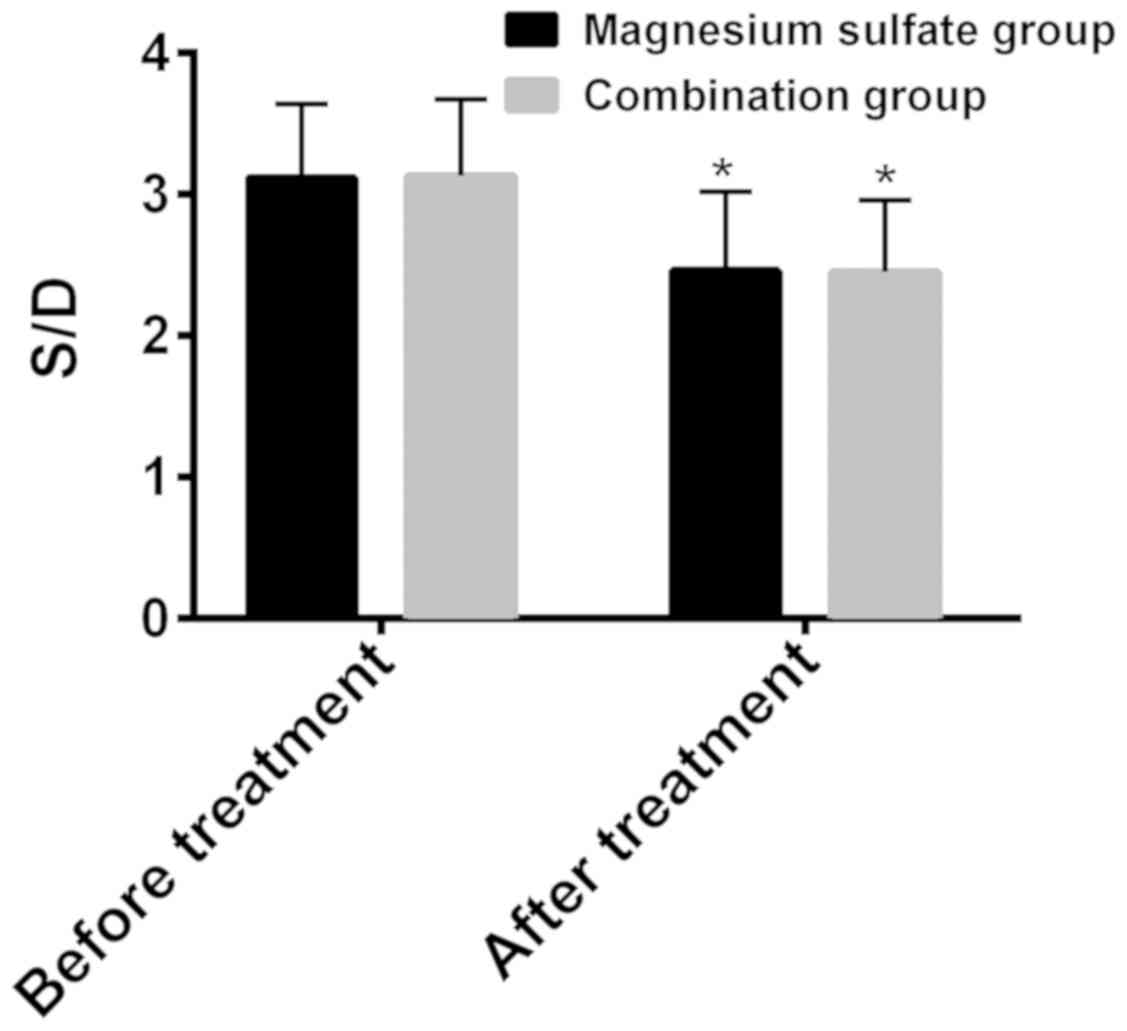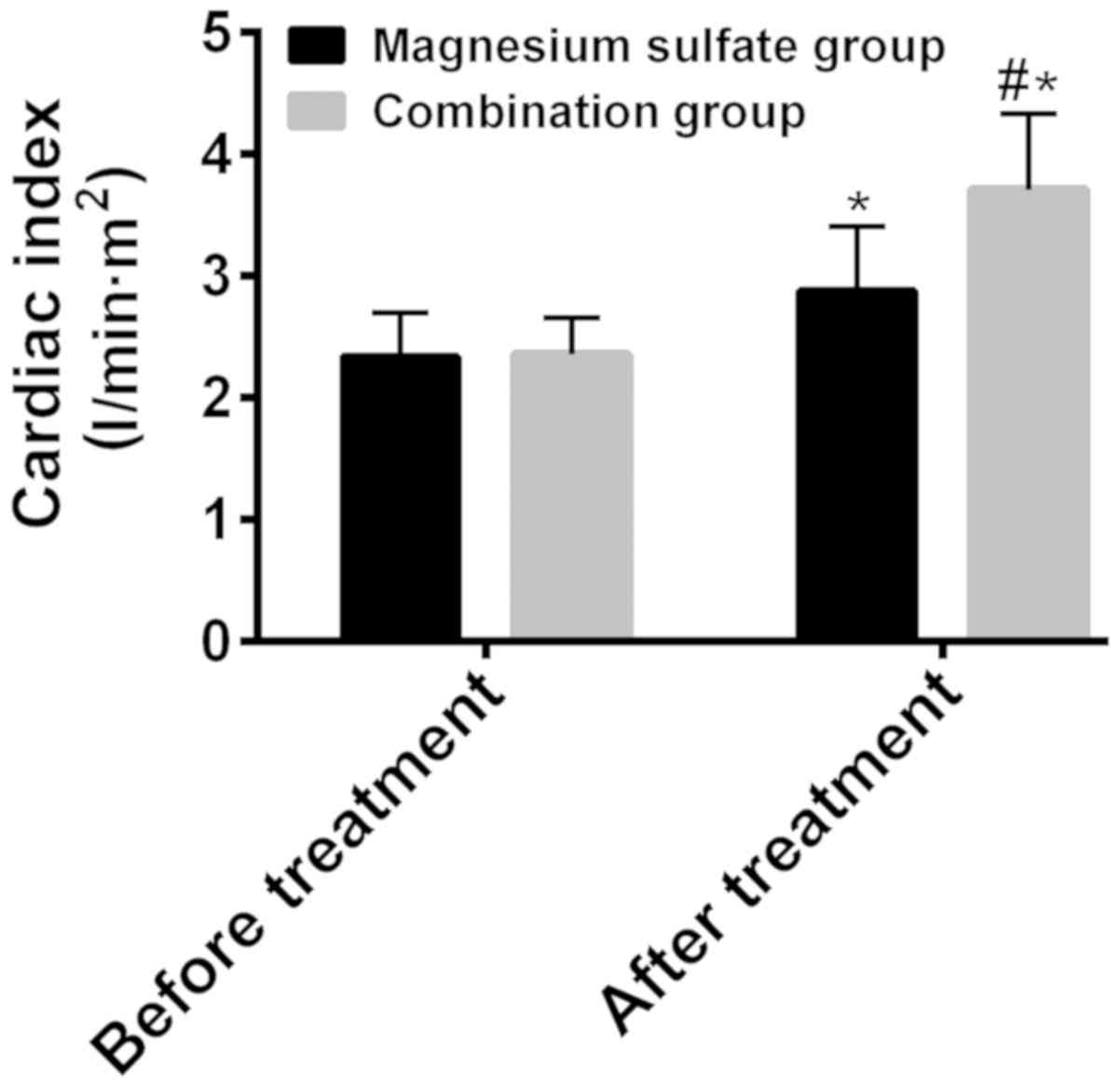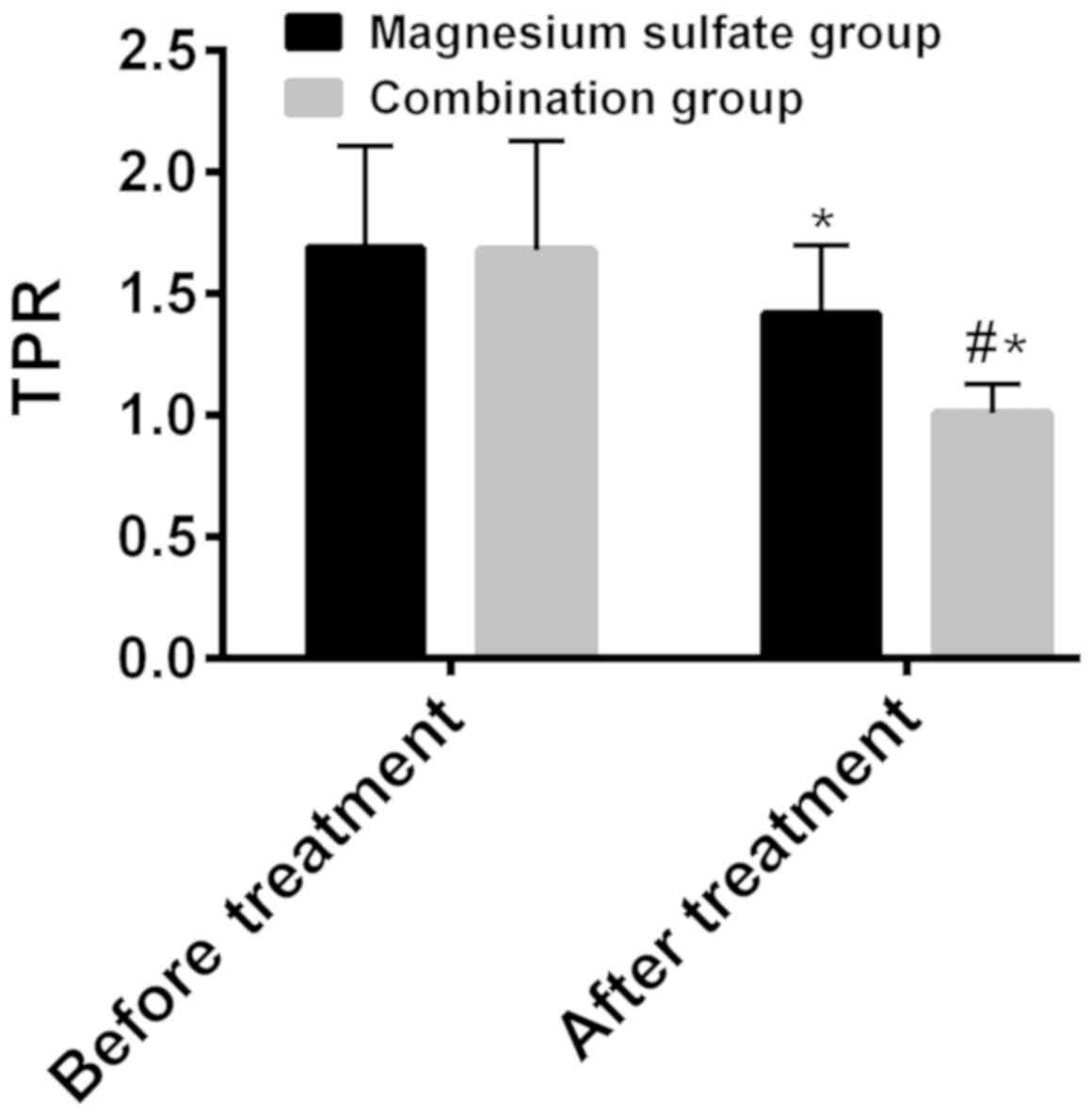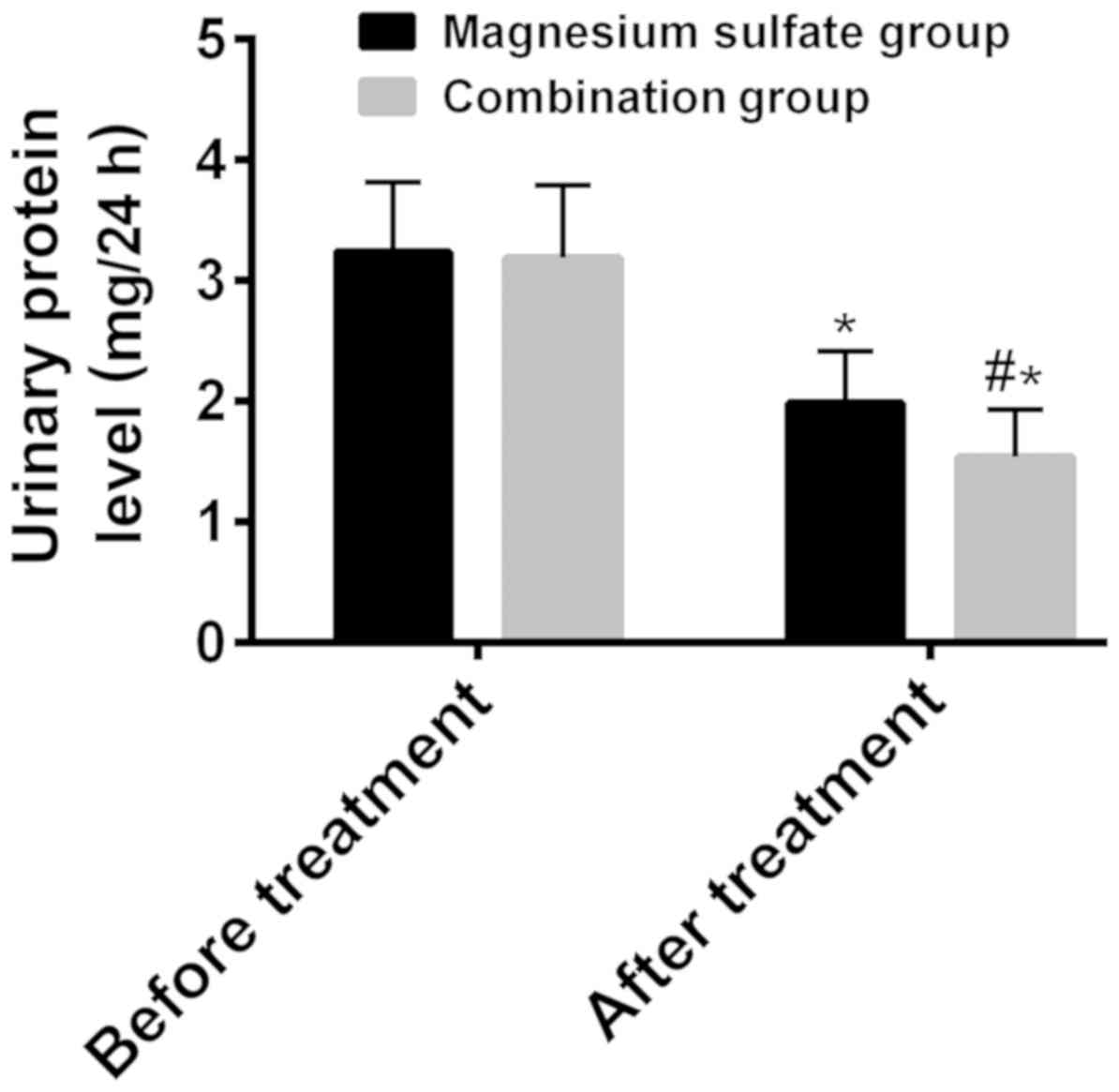|
1
|
Barakat R, Pelaez M, Cordero Y, Perales M,
Lopez C, Coteron J and Mottola MF; Randomized Clinical Trial, :
Exercise during pregnancy protects against hypertension and
macrosomia: Randomized clinical trial. Am J Obstet Gynecol.
214:649.e1–649.e8. 2016. View Article : Google Scholar
|
|
2
|
Liu FM, Zhao M, Wang M, Yang HL and Li L:
Effect of regular oral intake of aspirin during pregnancy on
pregnancy outcome of high-risk pregnancy-induced hypertension
syndrome patients. Eur Rev Med Pharmacol Sci. 20:5013–5016.
2016.PubMed/NCBI
|
|
3
|
Madsen C, Håberg SE, Aamodt G, Stigum H,
Magnus P, London SJ, Nystad W and Nafstad P: Preeclampsia and
hypertension during pregnancy in areas with relatively low levels
of traffic air pollution. Matern Child Health J. 22:512–519. 2018.
View Article : Google Scholar : PubMed/NCBI
|
|
4
|
Johnson P, Montgomery M and Ewell P:
Elevated blood pressure in low-income, rural preschool children is
associated with maternal hypertension during pregnancy. J Community
Health Nurs. 35:12–18. 2018. View Article : Google Scholar : PubMed/NCBI
|
|
5
|
Maged AM, Hashem AM, Gad Allah SH, Mahy
ME, Mostafa WA and Kotb A: The effect of loading dose of magnesium
sulfate on uterine, umbilical, and fetal middle cerebral arteries
Doppler in women with severe preeclampsia: A case control study.
Hypertens Pregnancy. 35:91–99. 2016. View Article : Google Scholar : PubMed/NCBI
|
|
6
|
Niwa K: Adult congenital heart disease
with pregnancy. Korean Circ J. 48:251–276. 2018. View Article : Google Scholar : PubMed/NCBI
|
|
7
|
Brookfield KF, Su F, Elkomy MH, Drover DR,
Lyell DJ and Carvalho B: Pharmacokinetics and placental transfer of
magnesium sulfate in pregnant women. Am J Obstet Gynecol.
214:737.e1–737.e9. 2016. View Article : Google Scholar
|
|
8
|
Cho CK, Sung TY, Choi SJ, Choi HR, Kim YB,
Lee JU and Yang HS: The effect of magnesium sulfate concentration
on the effective concentration of rocuronium, and
sugammadex-mediated reversal, in isolated left phrenic nerve
hemi-diaphragm preparations from the rat. Korean J Anesthesiol.
71:401–406. 2018. View Article : Google Scholar : PubMed/NCBI
|
|
9
|
Sarma AK, Khandker N, Kurczewski L and
Brophy GM: Medical management of epileptic seizures: Challenges and
solutions. Neuropsychiatr Dis Treat. 12:467–485. 2016.PubMed/NCBI
|
|
10
|
Park JB, Shin JH, Kim DS, Youn HJ, Park
SW, Shim WJ, Park CG, Kim DW, Lee HY, Choi DJ, et al FOCUS
Investigators, : Safety of the up-titration of nifedipine GITS and
valsartan or low-dose combination in uncontrolled hypertension: The
FOCUS Study. Clin Ther. 38:832–842. 2016. View Article : Google Scholar : PubMed/NCBI
|
|
11
|
Webster LM, Myers JE, Nelson-Piercy C,
Harding K, Cruickshank JK, Watt-Coote I, Khalil A, Wiesender C,
Seed PT and Chappell LC: Labetalol versus Nifedipine as
antihypertensive treatment for chronic hypertension in pregnancy: A
randomized controlled trial. Hypertension. 70:915–922. 2017.
View Article : Google Scholar : PubMed/NCBI
|
|
12
|
Jin J, Shen X, Tai Y, Li S, Liu M, Zhen C,
Xuan X, Zhang X, Hu N, Zhang X, et al: Arterial relaxation is
coupled to inhibition of mitochondrial fission in arterial smooth
muscle cells: Comparison of vasorelaxant effects of verapamil and
phentolamine. Acta Pharm Sin B. 7:319–325. 2017. View Article : Google Scholar : PubMed/NCBI
|
|
13
|
Yan Z, Shang Y, Li F, Xie F, Qian H, Zhang
Y and Yue B: Therapeutic efficacy of phentolamine in the management
of severe hand, foot and mouth disease combined with pulmonary
edema. Exp Ther Med. 13:1403–1407. 2017. View Article : Google Scholar : PubMed/NCBI
|
|
14
|
Schausberger CE, Jacobs VR, Bogner G,
Wolfrum-Ristau P and Fischer T: Hypertensive disorders of pregnancy
- a life-long risk?! Geburtshilfe Frauenheilkd. 73:47–52. 2013.
View Article : Google Scholar : PubMed/NCBI
|
|
15
|
Hromadnikova I, Kotlabova K, Ivankova K,
Vedmetskaya Y and Krofta L: Profiling of cardiovascular and
cerebrovascular disease associated microRNA expression in umbilical
cord blood in gestational hypertension, preeclampsia and fetal
growth restriction. Int J Cardiol. 249:402–409. 2017. View Article : Google Scholar : PubMed/NCBI
|
|
16
|
Petrakos G, Andriopoulos P and Tsironi M:
Pregnancy in women with thalassemia: Challenges and solutions. Int
J Womens Health. 8:441–451. 2016. View Article : Google Scholar : PubMed/NCBI
|
|
17
|
Flo K, Blix ES, Husebekk A, Thommessen A,
Uhre AT, Wilsgaard T, Vårtun Å and Acharya G: A longitudinal study
of maternal endothelial function, inflammatory response and uterine
artery blood flow during the second half of pregnancy. Acta Obstet
Gynecol Scand. 95:225–232. 2016. View Article : Google Scholar : PubMed/NCBI
|
|
18
|
Guy GP, Ling HZ, Garcia P, Poon LC and
Nicolaides KH: Maternal cardiac function at 35–37 weeks' gestation:
Prediction of pre-eclampsia and gestational hypertension.
Ultrasound Obstet Gynecol. 49:61–66. 2017. View Article : Google Scholar : PubMed/NCBI
|
|
19
|
Tiralongo GM, Lo Presti D, Pisani I,
Gagliardi G, Scala RL, Novelli GP, Vasapollo B, Andreoli A and
Valensise H: Assessment of total vascular resistance and total body
water in normotensive women during the first trimester of
pregnancy. A key for the prevention of preeclampsia. Pregnancy
Hypertens. 5:193–197. 2015. View Article : Google Scholar : PubMed/NCBI
|
|
20
|
Adamo KB, Ferraro ZM and Brett KE: Can we
modify the intrauterine environment to halt the intergenerational
cycle of obesity? Int J Environ Res Public Health. 9:1263–1307.
2012. View Article : Google Scholar : PubMed/NCBI
|
|
21
|
Siegel AM, Tita AT, Machemehl H, Biggio JR
and Harper LM: Evaluation of institute of medicine guidelines for
gestational weight gain in women with chronic hypertension. AJP
Rep. 7:e145–e150. 2017. View Article : Google Scholar : PubMed/NCBI
|
|
22
|
Demirci O, Kumru P, Arınkan A, Ardıç C,
Arısoy R, Tozkır E, Tandoğan B, Ayvacı H and Tuğrul AS: Spot
protein/creatinine ratio in preeclampsia as an alternative for
24-hour urine protein. Balkan Med J. 32:51–55. 2015. View Article : Google Scholar : PubMed/NCBI
|
|
23
|
Stepan H, Kuse-Föhl S, Klockenbusch W,
Rath W, Schauf B, Walther T and Schlembach D: Diagnosis and
treatment of hypertensive pregnancy disorders. Guideline of DGGG
(S1-level, AWMF registry no. 015/018, December 2013). Geburtshilfe
Frauenheilkd. 75:900–914. 2015. View Article : Google Scholar : PubMed/NCBI
|
|
24
|
Kongwattanakul K, Saksiriwuttho P,
Chaiyarach S and Thepsuthammarat K: Incidence, characteristics,
maternal complications, and perinatal outcomes associated with
preeclampsia with severe features and HELLP syndrome. Int J Womens
Health. 10:371–377. 2018. View Article : Google Scholar : PubMed/NCBI
|
|
25
|
Asgharnia M, Mirblouk F, Kazemi S,
Pourmarzi D, Mahdipour Keivani M and Dalil Heirati SF: Maternal
serum uric acid level and maternal and neonatal complications in
preeclamptic women: A cross-sectional study. Int J Reprod Biomed
(Yazd). 15:583–588. 2017. View Article : Google Scholar : PubMed/NCBI
|


















